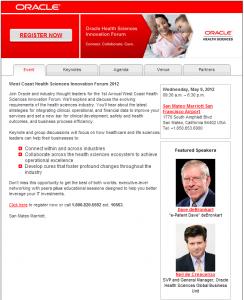Here’s a short piece I wrote for an event next Monday, October 29, at the Rijksmuseum in Amsterdam, hosted by KPN, the big Dutch telecom firm. The title is from a slide I used last spring at the Kanter Family Foundation’s Learning Health System conference. After, I’ll discuss the event – and some provocative questions.
___________

People perform better when they’re informed better
The e-patient movement – “empowered, engaged, equipped, enabled” – presents challenges to our culture: it creates new roles, new expectations, and new beliefs about what’s possible. It creates questions in the minds of educated people: can ordinary citizens, with no medical training, handle the truth? Handle new knowledge? Handle information that’s always lived in the hands of trained professionals?
We can’t see the future, but we can look to precedents – many precedents, in my life and long before.
Thirty years ago computer professionals raised the same questions about letting you and me have computers. It was hard to imagine that you and I, not trained as engineers, could understand these tools, much less do anything useful with them. The same happened in my industry – typesetting – when desktop publishing arrived: it was hard for us, the trained typesetters, to imagine ordinary citizens having fonts on those computers and making pages. But you did, and you do. Do you want to go back?
The problem is that our culture is challenged when tools and information reach people who’ve never had them before.
Sometimes the change is radical. When Gutenberg printed his Bible in 1455, [Read more…]


 Here’s information for the talk I just gave to the good folks at
Here’s information for the talk I just gave to the good folks at 
